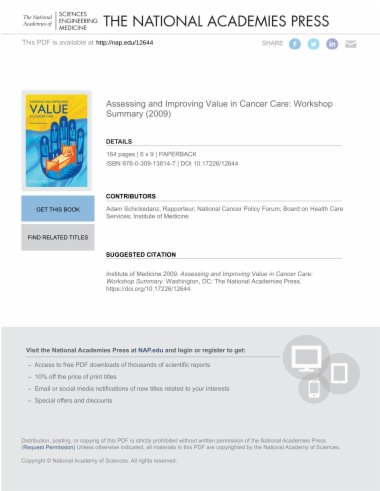

Unlike many other areas in health care, the practice of oncology presents unique challenges that make assessing and improving value especially complex. First, patients and professionals feel a well-justified sense of urgency to treat for cure, and if cure is not possible, to extend life and reduce the burden of disease. Second, treatments are often both life sparing and highly toxic. Third, distinctive payment structures for cancer medicines are intertwined with practice. Fourth, providers often face tremendous pressure to apply the newest technologies to patients who fail to respond to established treatments, even when the evidence supporting those technologies is incomplete or uncertain, and providers may be reluctant to stop toxic treatments and move to palliation, even at the end of life. Finally, the newest and most novel treatments in oncology are among the most costly in medicine.
This volume summarizes the results of a workshop that addressed these issues from multiple perspectives, including those of patients and patient advocates, providers, insurers, health care researchers, federal agencies, and industry. Its broad goal was to describe value in oncology in a complete and nuanced way, to better inform decisions regarding developing, evaluating, prescribing, and paying for cancer therapeutics.